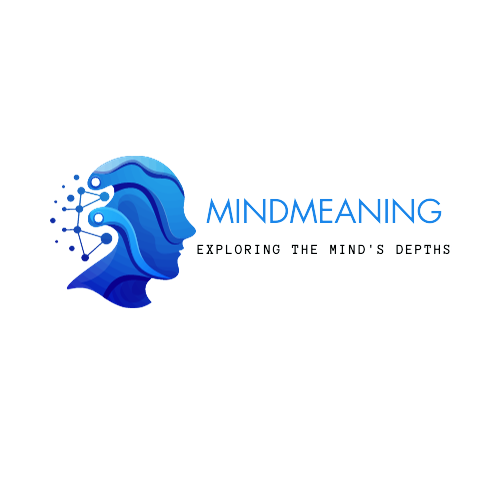How To Manage Mental Health Recovery: The Key Focuses
Mental health is an essential component of one’s overall health and well-being. It affects how individuals think, feel, and act, influencing their daily lives. Mental illness affects millions of people globally, and many individuals struggle with the effects of mental health conditions on their daily lives. This article aims to provide insights on how to manage mental health recovery, with a focus on key areas that can help individuals achieve and maintain good mental health.

1: Understanding Mental Health Recovery
Mental health recovery is a journey that involves healing from a mental health condition, achieving personal growth, and rebuilding one’s life. Recovery is a continuous process that requires time, patience, and support from professionals and loved ones. The focus of recovery should be on the individual, and not just the treatment process. Mental health recovery involves identifying and addressing the root causes of the illness, learning coping strategies, and developing a healthy lifestyle.
2: Key Focuses for Mental Health Recovery
i. Focus on the Individual
The focus of recovery should be on the person or the individual and not the process of treatment. There is a constant shift in the manners by which people suffering from psychological disorders are being treated. Individuals have various presentations of a mental disorder, thus requiring individualized forms of recovery treatments that are tailored to the person’s preferences, unique characteristics such as resiliency, strengths and weaknesses, cultural background, and experiences. Understanding the individual’s needs and preferences helps in providing personalized care and support, which is crucial in promoting mental health recovery.
ii. Focus on the Community
External support is invaluable in the process of recovery. Knowing that there are other people who, like the patient, also struggle to achieve the state of well-being they want to achieve. It helps for them to know that there are people who care for them, who want to see them gain back their life, and who share the same sufferings as they do. A mental health support group that would guide and enlighten the patients with the reality of the psychological disorder is also essential. This provides the mutual support that is needed in gaining skills and knowledge on the disorder, which is a contributory factor towards improvement.
iii. Focus on Issues Surrounding Mental Wellness
A direction set by both the mental health providers and the patient should be prepared during the initial stage of recovery. The patient determines the pace of healing while the mental health professional facilitates the direction. This perspective adheres to the belief that a recovery process is both an end and a process. Recovery from a mental disorder does not only cover specific and separate issues like biological or psychosocial aspects of the disorder. Instead, it affects a person in an extensive manner. Thus recovery should also focus on the micro as well as macro issues surrounding the disorder.
Recovery is a non-linear process that is both an end and a process. It is not a usual step-by-step process with varying levels. In mental health recovery, a person who has already overcome the symptoms of a mental disorder may still be troubled by the relapse of the same symptoms. It is a trial-and-error process with the promise of development and usual setbacks.
iv. Focus on Empowerment
The process of recovery should be empowered by hope matched by the motivation and willingness to break free from the mental illness. This could only be achieved when all individual factors – the perspective of the individual and the direction he is taking, the support of external groups such as the family and peers, and the right frame of mind – are considered.
3: Treatment Options for Mental Health Recovery
Treatment options for mental health recovery vary depending on the type and severity of the mental illness. The most common treatment options include medication and psychotherapy. Medications are used to treat the symptoms of mental illness, while psychotherapy helps individuals understand and cope with their mental health condition. Other treatments include cognitive-behavioral therapy, electroconvulsive therapy, and hospitalization.
4: The Role of Support in Mental Health Recovery
The support of family, friends, and mental health professionals is crucial in mental health recovery. Family and friends can provide emotional support, encouragement, and motivation to individuals during their recovery journey.
i. Holistic approach to recovery
The concept of holism should be fully integrated into the process of recovery. Recovery from a mental disorder does not only cover specific and separate issues like biological or psychosocial aspects of the disorder. Instead, it affects a person in an extensive manner. Thus recovery should also focus on the micro as well as macro issues surrounding the disorder.
The holistic approach to recovery involves treating the whole person, not just the illness. The approach emphasizes the importance of physical health, emotional well-being, social connections, and spiritual wellness. Therefore, recovery should include a combination of physical and mental health therapies, social support, and other techniques.
ii. Recovery should be empowered by hope
Lastly, the process of recovery should be empowered by hope matched by the motivation and willingness to break free from the mental illness. Recovery from mental illness is not a one-time event. It is a continuous process that requires ongoing attention and care. However, with the right mindset and support, anyone can overcome mental illness.
Conclusion
Mental health recovery is a complex process that requires focus and attention to the individual’s needs. A focus on the person, community, and issues surrounding mental wellness is crucial for the process of recovery. Recovery is a non-linear process that is both an end and a process. It requires a holistic approach that treats the whole person, not just the illness. Lastly, the process of recovery should be empowered by hope matched by the motivation and willingness to break free from the mental illness.
If you or a loved one is struggling with mental health, it is important to seek help from a mental health professional. Recovery is possible, and with the right support, anyone can overcome mental illness.
Here are some reputable organizations’ websites related to mental health recovery:
- National Institute of Mental Health (NIMH) – https://www.nimh.nih.gov/index.shtml
- American Psychological Association (APA) – https://www.apa.org/
- National Alliance on Mental Illness (NAMI) – https://www.nami.org/
- Mental Health America (MHA) – https://www.mhanational.org/
- Substance Abuse and Mental Health Services Administration (SAMHSA) – https://www.samhsa.gov/
- National Council for Behavioral Health – https://www.thenationalcouncil.org/
- Depression and Bipolar Support Alliance (DBSA) – https://www.dbsalliance.org/
- Anxiety and Depression Association of America (ADAA) – https://adaa.org/
- The Jed Foundation – https://www.jedfoundation.org/
- National Suicide Prevention Lifeline – https://suicidepreventionlifeline.org/







